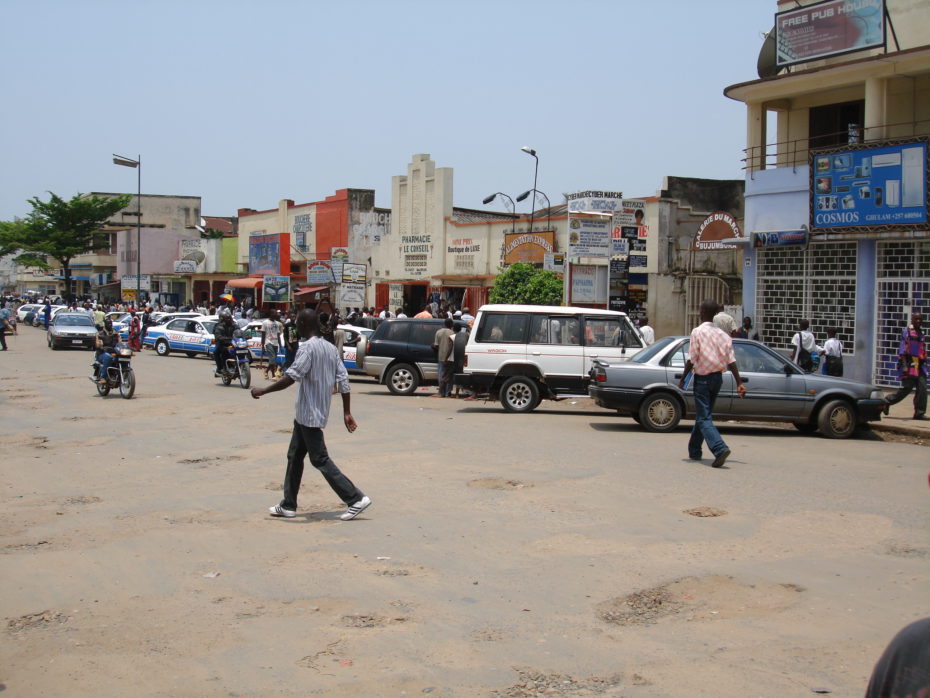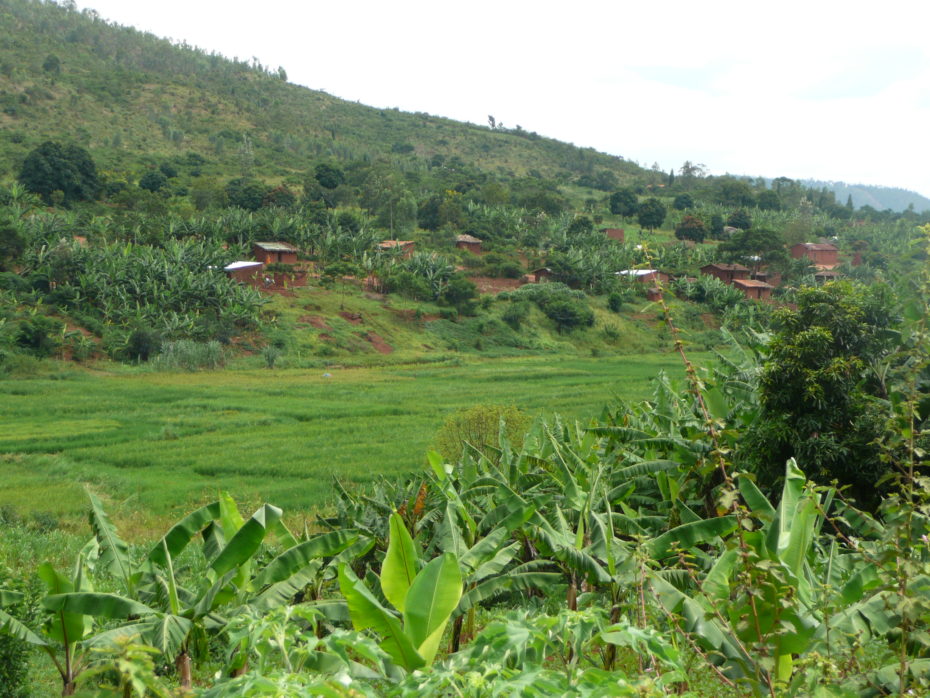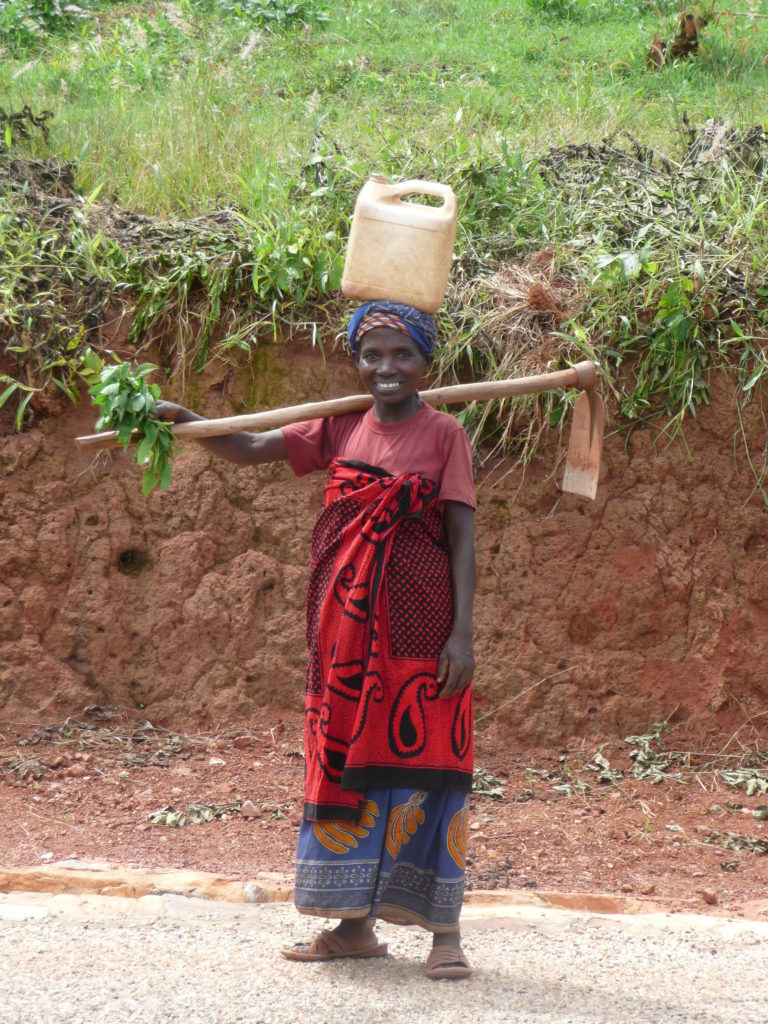Burundi may not seem to you an obvious destination for a beach holiday, in fact many people’s response to the name will probably be “where?” In case you need to know its to the south of Rwanda on the NE shore of Lake Tanganyika – a vast body of water by which we have been sunning ourselves on the goldenish sands. Sunday was hardly heaving like Brighton beach on a bank holiday but on monday we shared the beach with three locals – Oh the holiday hell!
But, this glimpse of tropical idyll is just that, one small speck of sun tanned tranquility in a troubled land of endemic poverty. The decades of instability since independence have witnessed the violent deaths of hundreds of thousands as many more have fled. Who knows how many have died from indirect causes, as the country has hardly registered on the international radar nobody has bothered to estimate. Unlike the Rwandan capital of Kigali that is dotted with gleaming spires of international aid institutions, a testimony to the huge financial support, very little gleams here, not even the UN compound of peacekeepers. Apart from the odd passing logo on a 4×4 there is virtually no sign of NGO’s working here.
Fleeing violence in 1993 many Burundians fled to Rwanda, only to then be caught up in the genocide the following year, which in turn infected their homeland. Whereas the guilt provoked by international negligence over the Rwandan genocide led to a huge influx of support, Burundi remained an invisible neighbour which has only regained stability in the last two years. Hopefully it will signal an end to the regular rounds of military coups. Stability has not however, brought financial rewards and it is still sinking into the economic mire. A brief glance at the capital Bujumbura will demonstrate this is not the kind of place where you phone the local council to repair the cracked pavement in front of your house, in fact you are lucky if you have anything resembling a pavement at all. The high street has a few vestiges of the tarmac which once graced its surface many years ago, it is no exaggeration to say that the farm tracks of England are less pot holed than many of the roads in the capital.
A quote from the Lonely Planet’s brief chapter on Burundi gives you a feel for the state of public services, under medical emergencies it reads: “in the event of medical emergencies it is best to leave the country”. Its been a long time since most of the government buildings received a coat of paint and only a few hints of faded colonial grandeur peek through the shabby shops and homes. One small, new, shiny shopping mall provided a glimmer of counterpoint to the dusty facades, so at least investment is not a complete impossibility.
Meeting the locals gives you no indication that their lives are so blighted. People are friendly and welcoming, generally amused to have foreign visitors on their streets. Strolling around you are not assailed by the disagreeable street vendors that plagued parts of Tanzania, whilst shops and cafes charged us the same as everyone else.
Night time in Bujumbura is another prospect entirely, the streets are simply too dangerous to be wandering in, stay in or get a taxi even if it’s for 200 m. Looking out of your taxi window after 9pm you see only heavily armed police, the odd oblivious drunk and those who are obviously so poor that non one would consider robbing them. I have seen all kinds of heavy bouncers at night clubs but never ones carrying AK47’s, as is de rigueur here. One other punter hopped out of his 4×4 preceded by two machine gun toting guards in defensive alert positions, sporting spare ammo clips and revolvers in the belt just in case.
It is this sad reality which will keep any useful number of tourists away from this undeniably beautiful country. Its steep, verdant hills are swathed with the same patchwork of family, farming plots that decorate Rwanda, albeit not quite so neatly. The national parks could provide some much needed income with some investment in infrastructure, but one can only hope that this is not a too distant a prospect.
The bus journey here from Rwanda was a great example of the Burundian love of discussion, during the four hours of journey there must have been more conversation than the entire UK National Express network has in a year. Topics were batted about between passengers from front to back, the mix of christians and muslims on board seemed to provide a basis of much, good natured, religious banter. But, whatever differences there may have been all the passengers could unite in the opinion that those bastards in the other bus, which had pulled out unannounced in front of us earlier were not going to overtake us, ever! If I could have spoken sufficient Kirundi I would have pointed out that its a bit churlish to fault another driver when we were hurtling down a steep, winding road at the kind of insane speed that made an accident seem inevitable. Faith in god to protect bus drivers from harm should be based on some awareness of one’s own actions.
The bus operated what I would call the sardine principle of seat belts: by wedging a sufficient number of people into a small bus with their luggage it is impossible to be thrown about in the event of an accident. Not sure if I shared the other’s faith in this principle, my immobilized legs were certainly not supporters of it.
Such quiet corners of Africa can offer a welcome inversely proportional to their international profile and its people deserve a future of peace and prosperity, too long denied them.







